- by Matt Hoffman
- Criminal Defense
Why You Need a Criminal Defense Attorney
In this article, attorney Matt Hoffman of the HoffmanLaw Office answers a question that commonly arises for someone recently accused of a crime, namely, do you really need to hire a criminal defense attorney to defend your case and, if so, why?
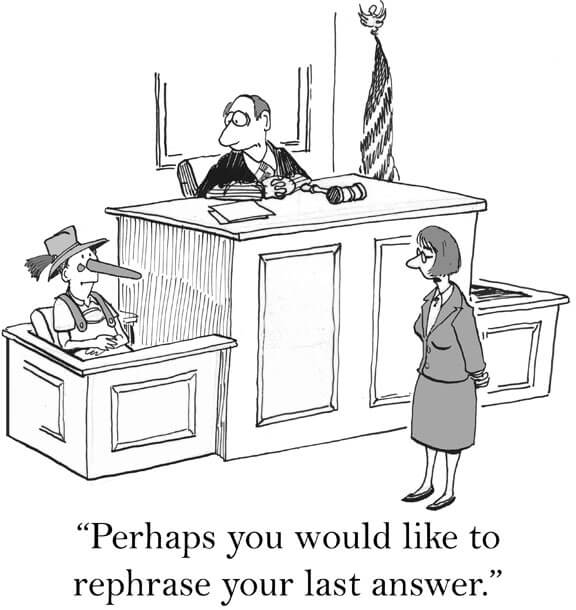
Let's say you've been charged with a crime for the first time in your life. Let's also say you've got a court date coming up.
Your court date's getting closer. And closer. And closer.
Right now, maybe you're starting to wonder: "Do I really need to go out and hire an attorney?"
Let's also say since you're charged with a criminal offense, your case could send you to jail or prison.
You know this, but you're trying not to think about it all . . . the . . . time.
There are misdemeanors and there are felonies.
In most states, there are two basic types of criminal charges: misdemeanors and felonies.
Misdemeanors are punishable by less than a year in jail. Felonies are punishable by a year or more in prison.
You probably already know these basic facts. Because you've Googled them at least a thousand times.
Who's got money for a lawyer, anyway?
But lawyers cost money, right?
And why should you pay a lawyer to defend you for something you didn't even do?
That's like a double injustice, you might think.
Seriously, it's bad enough you're charged with a crime.
So wouldn't it be even worse to have to pay someone your hard-earned money to keep you from going to jail?
The plot thickens.
In fact, the more you think about your whole situation, the more you realize the prosecution really has no case against you at all.
They couldn't possibly prove it, right?
Your case has just gotta be a "slam dunk not-guilty." Open-and-shut.
Hatching a plan.
So here's your plan: You go into court. You beat your case.
Then, everything's over and done with and you go on with your life.
Come to think about it, you've got friends, or friends of friends who've done exactly the same thing.
And now, the questions.
So why can't you go in and beat your own case?
What did all those other people have going for themselves that you don't?
What makes them so special?
The truth will set you free.
If this is your thinking, then all you should have to do is show up in court and tell the judge the real facts.
Because everybody knows the police and other witnesses have things all totally wrong and are just a bunch of liars, anyway.
After all, you're a really convincing person.
You've always done an amazing job representing yourself throughout your life in a ton of other challenging situations.
It's time to tempt fate.
So why should representing yourself in criminal court come out any differently?
You just have to come out on top.
Maybe your thinking has gone so incredibly far you've even convinced yourself the future is pretty certain.
There's just nooooo way a judge or a jury could ever, ever, ever find you guilty of something you didn't do.
They've just got to see: You're totally innocent.
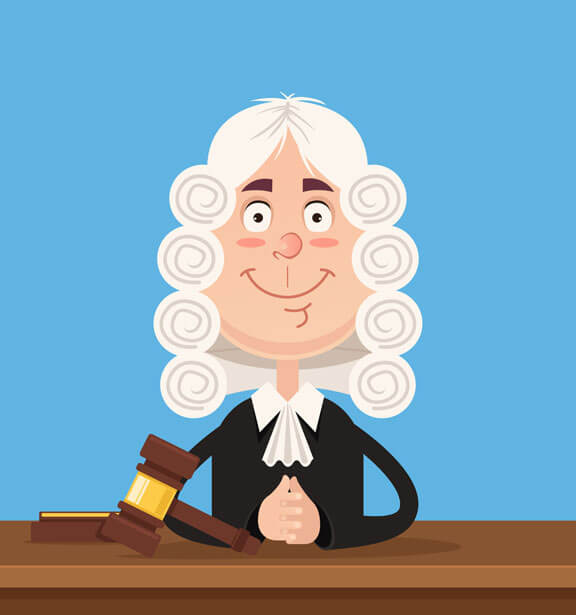
And how about your backup plan?
And even if somehow, some way you were found guilty which, you think, won't happen, can't happen in a million years, then what's the worst thing that'll occur if you actually do get sentenced for a crime?
Even then, the judge would just know automatically you're really an excellent person and hit you with a slap on the wrist. Right?
Anything else, you might be telling yourself, would just be . . . impossible.
Correct?
NO. NO. AND NO. NOT CORRECT. NOT CORRECT AT ALL. PERMIT ME TO SET THE RECORD STRAIGHT.
Any idea you might have that getting things done in a criminal courtroom is a simple, breezy process couldn't be further from the truth.
What's criminal court like really?
The actual fact is that to even the most sophisticated and experienced criminal defense attorney, criminal court can sometimes seem more like a lion's den than a civilized and comfortable place to do business.
If you're really seriously thinking of defending yourself against criminal charges, then like a gladiator thrown into the Colosseum, you might get eaten alive.
Still, you do have that right.
In no way are these initial countervailing observations meant to discourage you from exercising your right to defend yourself in criminal court.
If you do wish to exercise that right, then you should, by all means, be permitted to do so, barring any potential legal impediments, such as being found mentally unfit to stand trial.1
And if you're not unfit?
If you're not unfit, then you should still give very careful consideration to exercising your right of self-representation.
And like a jedi master, you should also be mindful of the powers and forces at work in a criminal courtroom. Many of these forces will be working against you.
Self-knowledge is key.
You should know whether or not you're really up to the task of defending your own case.
If you defend your own case, you'll be acting as your own lawyer, your own counsel.
You'd be doing that in a world where it's generally known that even an experienced attorney who represents him or herself "has a fool for a client."
Lies. Damned lies. And statistics.2
The sad laws of statistics have shown over and over that people who think they're totally innocent, that they couldn't possibly be found guilty of a crime in a court of law, repeatedly have found themselves on the short end of the legal stick.
Some of these totally innocent people have ended up spending the rest of their lives in prison- because they wanted to be their own lawyers.
The primrose path to hell is paved with good intentions.
Many other self-represented defendants have needlessly incurred criminal records, served lengthy probation terms, earned themselves felony convictions, been forced to pay high fines, or lost their careers- all because they made the crucial mistake of thinking they'd beat the criminal justice system, without any prior experience of ever having accomplished a single thing in court of law.
Seriously. No, really, seriously.
If you're really considering going into criminal court and defending yourself, especially if you lack legal experience, you might want to take a few breaths right now and think otherwise.
You might strongly consider doing a major reality check.
It's just a fact: If you go into court and defend yourself against criminal charges that could land you in jail or worse, prison, then you might be making one of the biggest mistakes of your life.
A former prosecutor speaks.
On what do I base these opinions?
I base these opinions on my real-life work experience.
You see, I've been either a prosecutor or a criminal defense attorney for nearly 20 years straight.
I've spent untold thousands of hours in criminal courtrooms and witnessed just about everything that can go wrong (and right) for a criminal defendant.
I've seen profoundly talented and experienced attorneys systematically taken apart by opposing counsel.
I've also seen lawyers who lacked both skill and experience pull rabbits out of their hats and win against all odds.
Over the years, personally I've lost cases the facts said I should have won and won cases the facts said I should have lost.
But I've never lost from not trying. And I've never, ever, ever lost because I didn't know the law.
What have I learned from my experiences?
What I've learned from these experiences is that criminal court is almost always a tough, unpredictable place to achieve desired outcomes.
It's precisely because of this toughness and unpredictability that having a good criminal defense attorney on your side can be so valuable.
A good criminal defense attorney is going to be an expert at solving problems in the courtroom where your case is going to get resolved.
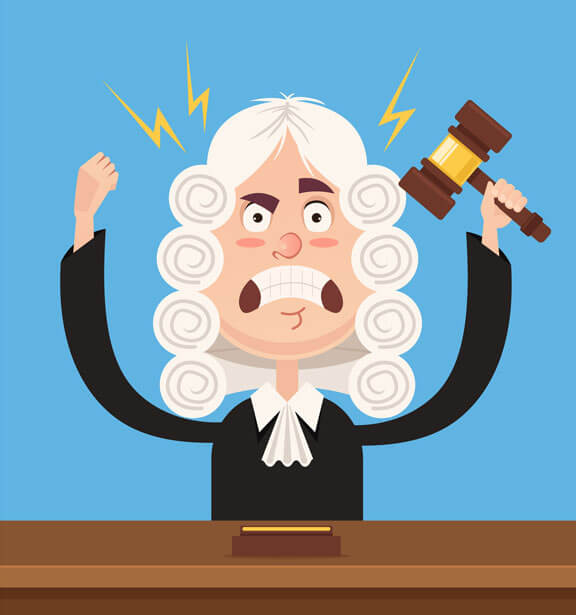
Do great criminal lawyers win every case?
It's true: Even attorneys who work in criminal court on a daily basis don't always get what they want.
In this challenging environment, the good attorneys are those who maintain a strong record of success for their clients.
The great attorneys are those who not only routinely achieve successful client outcomes, but who also are always a threat to achieve all-star results in seemingly impossible situations. These are the lawyers who just flat-out believe in themselves.
Where do great criminal defense attorneys come from?
Good and great criminal defense attorneys aren't concocted in a laboratory. They don't come from reading books.
Lot's of them probably didn't do too well in law school, because the copious memorization and note-taking of law school didn't remotely intrigue them the way the real-life stage and the hustle and bustle of criminal court ultimately would.
Really great criminal defense attorneys don't spring from an idea they have about themselves. Instead, these lawyers are forged over years in the crucible of the criminal courtroom.
They go into court, and then they leave. Again, and again, and again. They do battle. Sometimes, they fight wars. Win or lose, they always gain from the experience and then come back to fight another day.
These lawyers spend their working lives listening, speaking and learning in criminal court. They study the performances of other attorneys and learn from their own past successes and failures.
To a great criminal defense attorney, the courtroom itself is a classroom.
A great criminal defense attorney is perpetually a student, always learning something new from every client, every witness, every lawyer and every judge he meets.
So, a question for you: Have you spent your entire working life doing the things a criminal lawyer does?
Didn't think so.
What characteristics does a great criminal defense attorney possess?
Through experience, a great criminal defense attorney comes to refine and enhance a number of characteristics in combination.
These include a natural talent for the art of advocacy, a tireless work ethic, innate intelligence, wit, tact, incisive and insightful interpersonal skills, a powerful and highly developed knowledge base in all aspects of governing criminal law, familiarity with the prosecutor and the presiding judge, polished communication skills, self-confidence, poise, calm under fire, especially when in front of a jury, quickness on one's feet, strong logical and analytical abilities, dedication, perseverance, creativity, adaptability, determination, curiosity, a love of competition, a never-say-die attitude and courage.
A great criminal defense attorney has all these qualities and more. A great criminal defense attorney commands respect in the courtroom because his talents and abilities are known.
Still thinking about going it alone? Then keep reading.
So, if you're considering defending yourself against the criminal charges you're now facing, as opposed to hiring a great criminal lawyer, then you might ask yourself if you lack any of these characteristics and abilities in any way.
Because what you do lack will hurt you.
Entering the great beyond.
Moving forward, then, let's start to get a little bit more specific.
Let's actually enter a criminal courtroom.
Come on, you can hold my hand if you want. I've been here before.
One of the first things I'm going to ask you to consider is how this whole place is set up.
You see that flag over there in the corner? See it? Of course you do, because it's impossible to miss.
Let's get our bearings.
That big beautiful flag represents the United States of America. It's where we're standing right now. In fact, we also happen to be standing in the State of Illinois.
I've chosen Illinois because it's where I've practiced law for two decades.
The laws that will govern the resolution of your case are the laws of the State of Illinois along with any and all federal laws and rights Illinois must recognize.
State? Federal? What's the difference?
Unless you're being prosecuted in federal court for a federal crime alleged to have been committed against the United States of America, then most likely you're being prosecuted under the criminal laws of the state where the crime allegedly occurred.
No one, but no one, messes with the presumption of innocence.
One of the oldest rights a defendant like you has in a criminal case is the presumption of innocence. This right is not to be found in the U.S. Constitution but is generally believed to be a carry-over from English law. The presumption of innocence is a bedrock of American criminal justice.
Ready for your Con-law lesson?
When the Fourteenth Amendment to the Constitution of the United States came around, it made the federal Bill of Rights applicable to the states. It also forced the states to afford defendants in criminal cases something called "due process."
Basic due process means your rights in criminal court contain not only the presumption of innocence, but also the rights to force the prosecution to prove the charges against you beyond a reasonable doubt, to confront and cross-examine witnesses against you, to remain silent and refuse to incriminate yourself, and to have a trial by jury, among others.
By no coincidence, another right you have is the right to legal counsel!
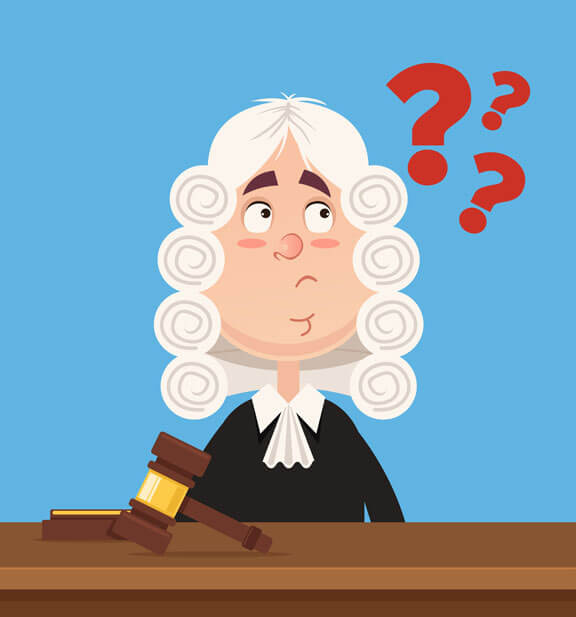
Starting to feel a little queasy? Maybe you should be.
If all this talk about rights and constitutions and amendments and countries and states is making you a little dizzy, then maybe you should pay attention to that feeling if you still remain determined (or hell-bent) to act as your own lawyer in criminal court.
Breathe. Breathe.
Let's slow things down and think a little more.
Why would American law have built up such a focus on the defendant's rights in criminal court?
And why, over more than 200 years, have these rights been so carefully delineated, spelled-out, codified and literally etched into stone?
Newsflash: It's because criminal court is an ADVERSARIAL PROCESS.
Yup. Say it again. "Ad-ver-sar-i-al."
Say it again, and again and again, until you really internalize it.
"Adversarial. Adver-sar-ial. Ad-versar-ial."
Keep saying it. Over. And over. And over.
Go ahead and write the word "adversarial" on a sticky note and post it on your bathroom mirror so you can read that word every morning and night when you brush your teeth.
Because if you're going to represent yourself in criminal court, you're really, and I do mean really, going to have to understand what this word means.
Uh, what does "adversarial" mean?
Something "adversarial" is something "involving or characterized by conflict or opposition."3 In a nutshell, the resolution of criminal charges, being an adversarial process, means you're going to have an opponent if you defend yourself.
Let's get ready to rumble!
Your opponent is going to be a certain type of lawyer, called a "prosecutor." This prosecutor will be representing the State.
It's the prosecutor's job to see to it state law is obeyed and when someone breaks the law and commits a crime that person is punished.
At the core of the prosecutor's job is the pursuit of justice.
A problem for you is that in a prosecutor's mind "seeking justice" usually means pursuing a conviction against you.
The prosecutor is not your friend. The prosecutor isn't there to help you.
Also, walking into a criminal courtroom isn't like strolling into your local grocery store. No one, and I do mean no one, in criminal court is required to give you service with a smile.
Not the prosecutor. Not the clerk. Not the bailiff. Not the judge. Not the court reporter.
General civility is expected, but smiles never are.
So why do defendants need so many protections?
You see, if the powers-that-be (a.k.a. the elected government) didn't find it valuable to spell out all these rights and make them the law of the land, then nobody could rely on them for protection.
And if nobody could rely on them for protection, then our whole system of justice would change drastically to who-knows-what. In that situation, maybe people suddenly wouldn't have any rights at all.
Where do we most need protection?
In what kind of places does a person actually need protection? Hmmm. Let's think.
Do people need protection in safe places? No.
How about in dangerous places? Yes.
Now we're getting it.
The entire American system of justice therefore is constructed on the premise that even people accused of terrible crimes deserve certain protections. We calls these protections "rights."
Our society has decided if it's going to take away your liberty or life for the commission of a crime then at least certain efforts should be made to do so in what it perceives to be a fair manner.
The crowning glory of this pursuit of fairness is our adversarial system of justice.
In the adversarial world of a criminal courtroom the way things get done is through combat.
Seriously, combat is how things get done.
A criminal case, in a very general way, is a battle of facts waged within a playing field defined by governing law.
Prosecutor sighted. Watch out.
Do you see that prosecutor who just walked in the door? Yes, that one, over there.
Shhh. Be quiet. Watch out. She's dangerous.
Too late. She's spotted us. Now what?
Just what makes prosecutors dangerous?
Even though you're presumed innocent of the crimes charged against you, it's the prosecutor's job to overcome that presumption.
And the prosecutor we've just spotted is going to set about doing that in a methodical fashion.
That's right. If she thinks you did it, then making sure you're found guilty is her job.
And guess what else?
She's really good at what she does. In fact, she's been punishing criminal defendants just like you for the past ten years of her life.
Before she became a prosecutor, she spent three years in law school devouring criminal law. She's got several dozen jury trials under her belt. She's a star.
She could probably wallpaper her office with the faces of people she's sent to jail or prison.
Do you really want to mess with her without any help?
Mano a mano.
If you defend yourself, she'll be your opponent.
It's not her job to tell you where you can go find the Dixie cups in the grocery store. It's her job to get you convicted and put you behind bars.
She's smart, talented, and knows all the players in this game of justice like the back of her hand. Also, she knows all the rules. Most of the rules she knows so well are things you've never even heard of.
If you compete with her, even if all your many rights are honored and protected, she's still more-likely-than-not going to eat you for lunch.
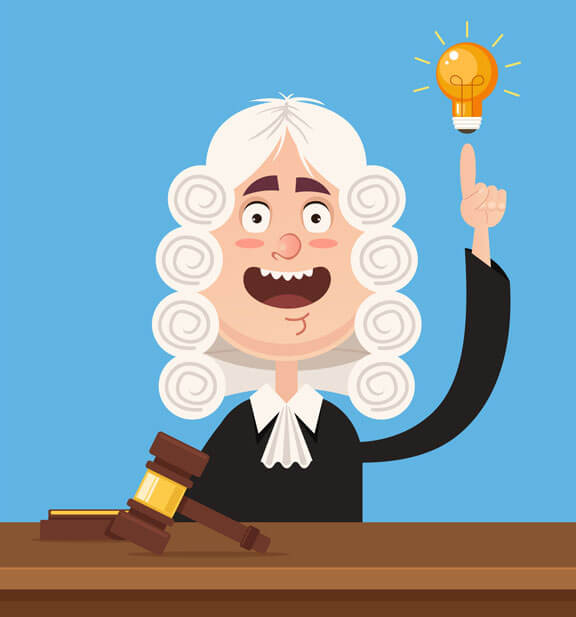
But . . . But . . . But . . .
I understand you're presumed innocent. I understand you've got all these protections.
If she does her job, and the judge does his job, all your protections will be honored.
But that prosecutor's still probably gonna tear you apart.
Now, what else shall we discuss?
Do you know, like the Scarecrow in the Wizard of Oz, that "The sum of the square roots of any two sides of an isosceles triangle is equal to the square root of the remaining side?"
How about Greek, or Latin? Can you speak either of those languages, let alone with perfect fluency?
I'm guessing you can't.
I'm guessing also the Scarecrow, once the Wizard gave him such a stellar brain, just might know more about math than you do.
Do you think the Scarecrow, if he got busted stealing corn and selling it by the bushelful on an illegal market, would go into criminal court and defend himself?
Probably not. He'd probably think about it a little bit, and then decide defending himself would be a really bad idea.
And why would he come to that conclusion?
Well, he'd have enough common sense and basic intelligence to understand that, while he might know a lot about the square roots of isosceles triangles, he doesn't know a darned thing about a court of law.
What the Scarecrow would do would be to go out and hire himself a great criminal defense attorney.
He'd be smart enough to recognize his own limitations.
The questions is, are you?
So, what have we discovered?
We've discovered criminal court is an adversarial process. In this adversarial process the prosecution competes against the defense.
The prosecution works to meet its burden of proof and to overcome the presumption of innocence protecting the criminal defendant.
If the prosecution achieves that goal, then the defendant gets punished as allowed by law.
If, to the contrary, the defense wins this battle, then the defendant is acquitted and the charges are dismissed.
Anything else?
We've also learned this adversarial process places a high premium on certain abilities and skills.
The criminal court competitors who possess these characteristics typically achieve much better results than those who do not.
These characteristics include knowledge of the law and experience with legal advocacy in criminal court.
Who typically possesses these basic characteristics? Criminal lawyers.
And who typically lacks these characteristics? People who aren't criminal lawyers.
Let's start wrapping up.
So when you get right down to it, if you take on the momentous task of representing yourself in criminal court, you really better know what you're getting yourself into.
Most likely, you'll be going into a fight against a highly trained and experienced competitor. Also, you'll be held to a very high standard.
You won't be afforded "special rules" because you lack the knowledge and experience of your opponent.
And while the court likely will bend over backward to protect your basic rights, the judge presiding over your case isn't going to assist you or give you legal advice.
If you fly solo, you're going to be held to the same standard of knowledge and expertise as would any licensed attorney who could be defending your case.
Some parting questions.
Are you feeling up to it?
You still want to test fate?
You still want to go into criminal court and show everyone who's boss?
It's your choice.
In many criminal cases, the only thing standing between the defendant and the jailhouse or prison door is a criminal defense attorney.
So, now is the time to choose wisely.
Are you going to hire a good criminal defense attorney?
A great criminal defense attorney?
Or, are you going to pretend you're a lawyer, have a fool for a client, and go convict yourself?
Court's adjourned.
1 Illinois law governing a defendant's mental fitness to stand trial is found in Article 104 of the Illinois Code of Criminal Procedure. See, 720 ILCS 5/104-10, et al. According to Illinois law, "A defendant is presumed to be fit to stand trial or to plead, and be sentenced. A defendant is unfit if, because of his mental or physical condition, he is unable to understand the nature and purpose of the proceedings against him or to assist in his defense." Source: Illinois Code of Criminal Procedure.
2 The full quote is, "There are three kinds of lies: lies, damned lies, and statistics." The origin of this quote remains in debate. "The phrase was popularized in the United States by Mark Twain (among others), who attributed it to the British prime minister Benjamin Disraeli . . . However, the phrase is not found in any of Disraeli's works and the earliest known appearances were years after his death. Several other people have been listed as originators of the quote, and it is often erroneously attributed to Twain himself." Source: Wikipedia.
3 Source: Oxford English Dictionary.
Illustrations: iStock.
Tweet



